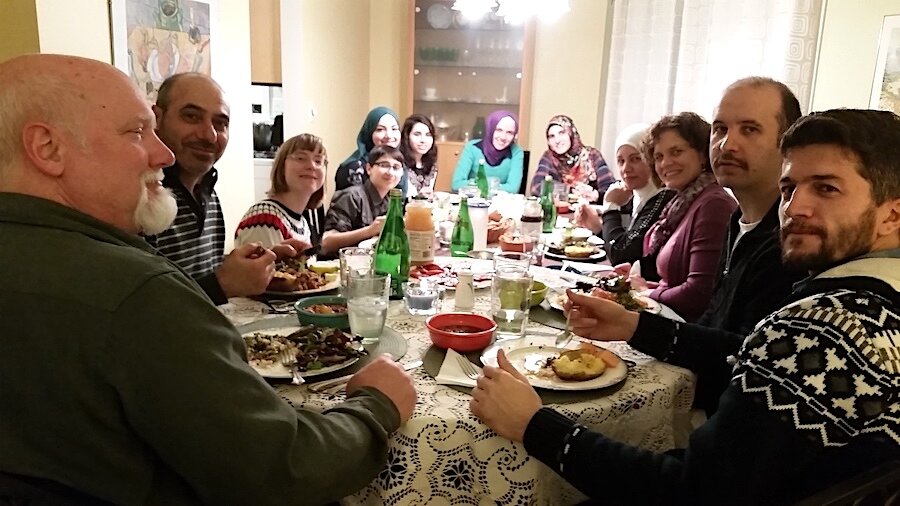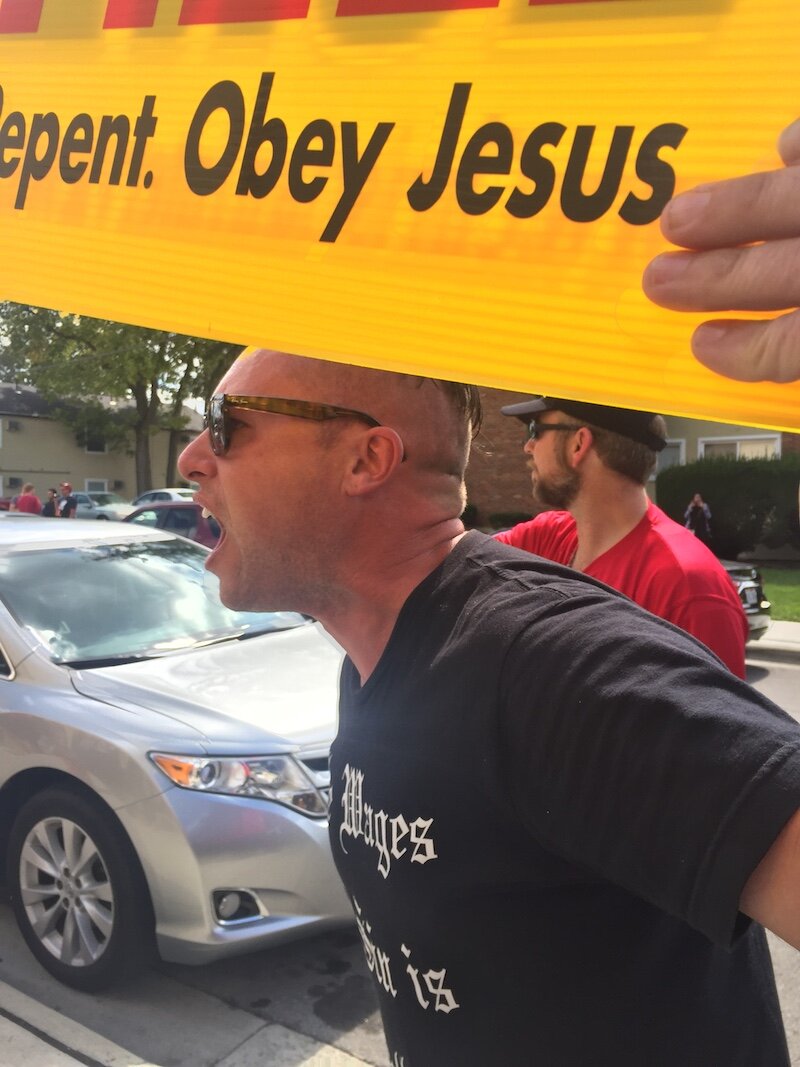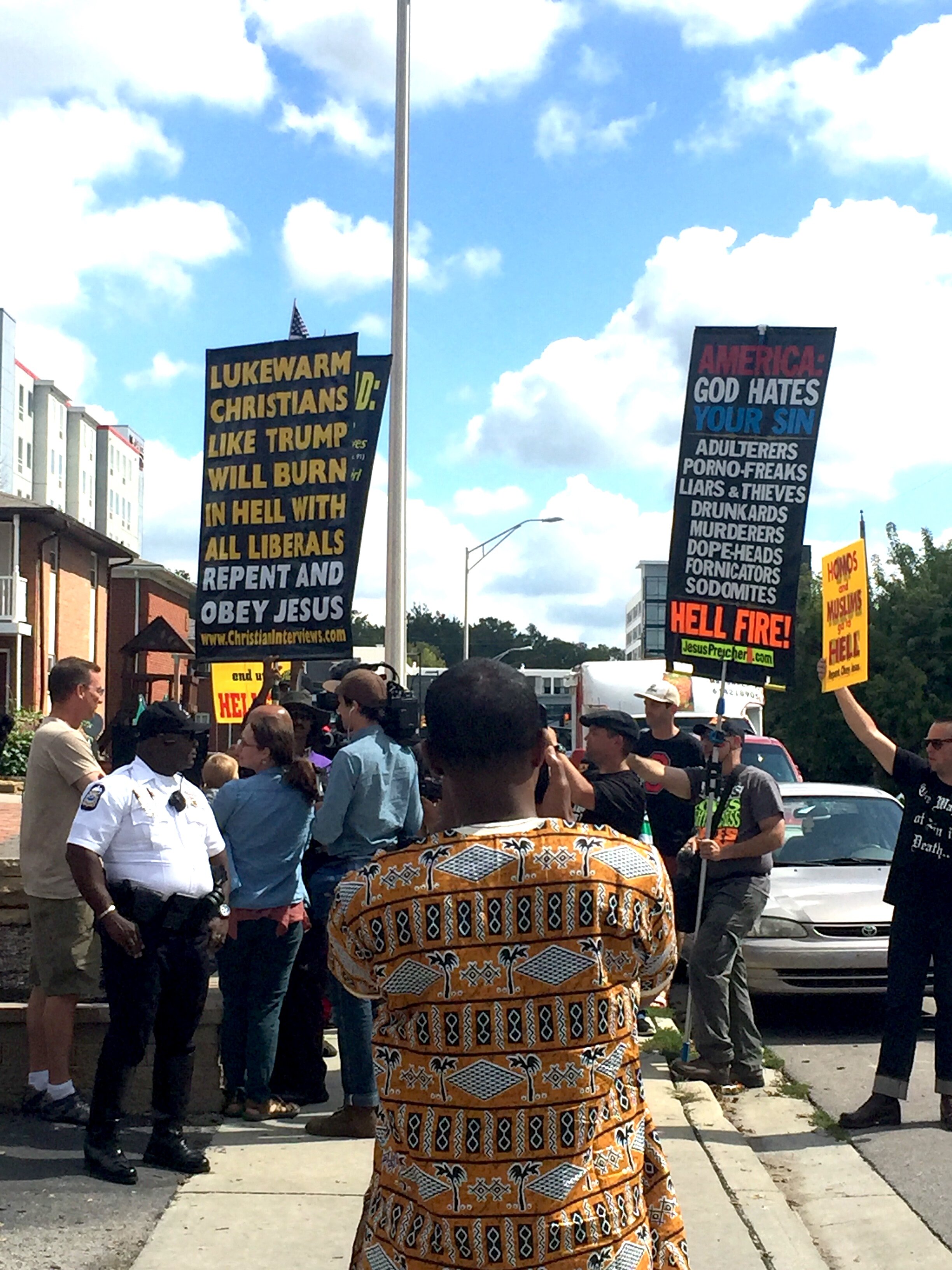September 11: Remembering the Tragedies, Turning Toward Peace
by Rick Love
September 11, 2001 is a day that will never and should never be forgotten. On that day, in the space of a few short hours, two tragedies took place. The first and most painful: almost three thousand Americans lost their lives in the horrific terrorist attacks. This in turn unleashed the wars in Afghanistan and Iraq, where almost five thousand more Americans have died. Terrorism and our response to terrorism have gone global.
Since then almost nine thousand Afghan civilians have lost their lives, and over ninety thousand Iraqi civilians have been killed in the two wars. Though described euphemistically as “collateral damage,” these civilians were innocent mothers, sisters, fathers and brothers of real families. Whether we view the fallen as brave American heroes or as unfortunate Muslim civilians, the cost of war is appallingly high.
But a second tragedy occurred on 9/11. An act of terror perpetrated by extremists led to the demonization of an entire religion. After 9/11, Muslims = terrorists.
The media has bombarded us with soundbites and stereotypes. Sometimes we are told that Islam is a religion of peace. Yet the more disturbing and frequent picture painted is of militant Islam. Much of what we hear about Islam leads Westerners to conclude that it is “the evil empire” of today.
Sure there are Muslim terrorists. But the vast majority of Muslims have forcefully condemned terrorism. Perhaps the blue-eyed, blond-haired “Christian” terrorist of Norway has reminded us that terrorism comes in many religious forms. Terrorists are extremists. Period.
It is immoral and irrational to demonize an entire religion. The Muslim world is not monolithic. It is massively diverse. I have walked the streets of over twenty Muslim countries. I have had coffee with rich Muslims in the Gulf and tea with poor Muslims in Africa and Asia. I have seen secularized Muslim women with hair and face uncovered, wearing tight clothes and short dresses, and Muslim women fully covered. I have lived in a Muslim country that has had a female head of State (Megawati Sukarno of Indonesia) and I have personally met the late Benazir Bhutto, a female Muslim head of state (former Prime Minister of Pakistan). So much for the broad generalization that Islam oppresses women – the last time I checked, America has never had a female head of state.
There are about 1.5 Billion Muslims in the world, with over 2000 ethno-linguistic groups. They live in 52 Majority Muslim Nations and 40 countries with small majorities. There are two major sects: Sunni and Shia, with 8 different legal schools of Islam. There are theocracies in Saudi Arabia and Iran and secular governments in Turkey and Indonesia. In addition, a large percentage of Muslims are Sufi – mystics who want to know God personally. You cannot stereotype Muslims!
So when the media says Islam teaches this or that, we need to ask... which Islam? Which sect? Which cultural manifestation? There are multiple versions of Islam (just like there are multiple versions of Christianity). The majority of Muslims are just like you and me: trying to make a good living, trying to build a strong family, trying to be faithful to God. 9/11 has been a tragedy for the vast majority of Muslims in the world.
In a few days we will remember the tenth anniversary of 9/11. How should we respond to these two tragedies? I think the biblical passages that give us the clearest guidance are Romans 12 & 13.
Romans 12:15 exhorts us to “weep with those who weep.” We will mourn the loss of loved ones, brave ones or innocent ones – whether American, Afghan or Iraqi.
Romans 13:4 makes two profound statements about the government. First, “the authorities are God's servants, sent for your good.” Second, “they are God's servants, sent for the very purpose of punishing those who do what is wrong.” God has appointed the state to pursue our good and punish all evil – including terrorism.
When we think of 9/11 we remember the fallen and remember the evil of terrorism. We need to pray that our government will be successful in dealing with all forms of terrorism.
We remember, but we also need to turn towards peace. It is profoundly significant that the passage about government quoted above is sandwiched by two commands:
Romans 12:18 says, "If it is possible, as far as it depends on you, live at peace with everyone."
Romans 13:9-10 says, "Love your neighbor as yourself. Love does no harm to its neighbor."
In other words, the state is appointed by God to punish evil, and the church is commissioned by God to pursue peace and love its neighbor. Romans chapters 12 and 13 show us that we can love Muslims and deal with terrorists.
I will gather with hundreds of Christians and Muslims this September 11 to remember the fallen and to promote peace. I pray this day will be a turning point: a turn away from terror and the results of terror, and a turn towards peace. I invite you to join with us (whether you attend our service or not) and commit yourself to promoting peace.
September 11, 2011 is a time to remember the attack, the fallen, and the heroes. It is a time to recognize the difference between Muslims and terrorists, as well as the different role of church and state. It is a time to recommit ourselves to what it means to be followers of Christ.










